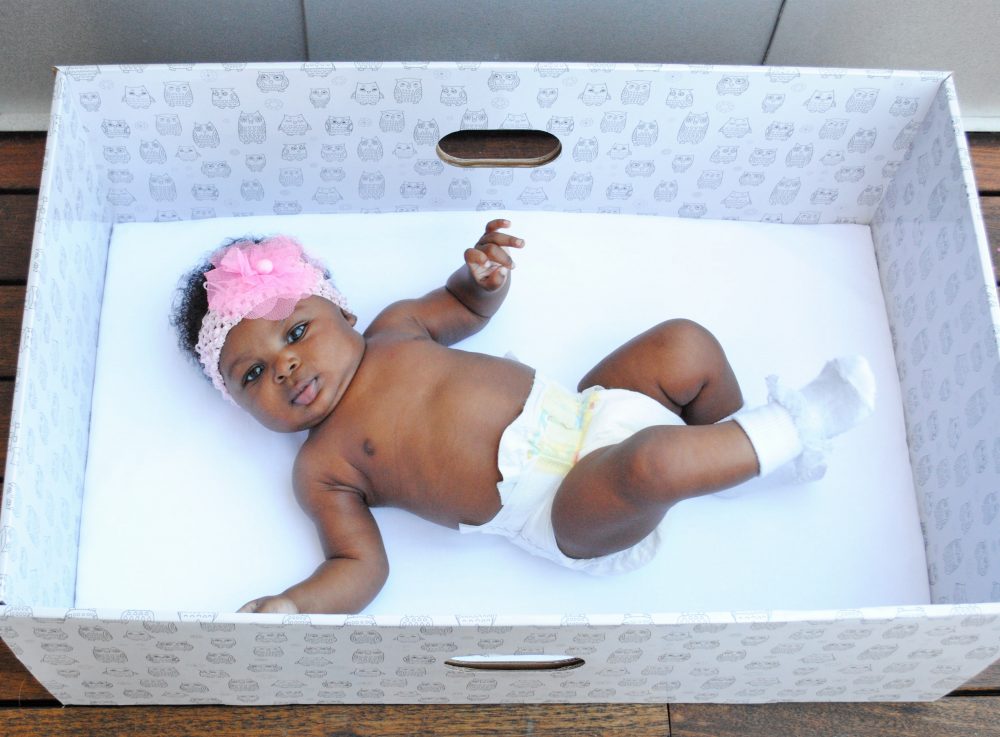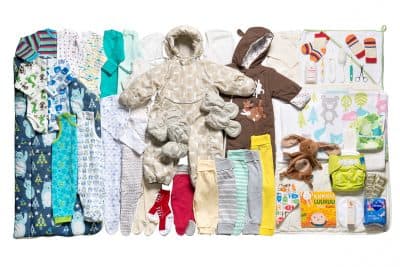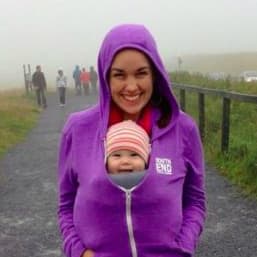Advertisement
COMMENTARY
A Box For Every Baby: Massachusetts Might Help Infant Mortality By Following Finland

When Paula Brady of Brookline told her aunt in Finland that she was pregnant, her aunt responded: We need to sign you up for a baby box.
For nearly 80 years, the Finnish government has provided new parents with baby boxes -- starter kits for parenthood with clothing, toys, diapers and even a bed — conditional on getting prenatal care. The cardboard box features a firm mattress and serves as a safe place to sleep.
Last month, New Jersey became the first state in the United States to launch a statewide baby box program. Massachusetts should launch its own version of baby boxes and give newborns a more equal start in life.

In the 1930s, Finland was a low-income country with a staggering infant mortality rate of 65 deaths per 1,000 births. Today, Finland has the lowest infant mortality rate in the world -- 2.3 deaths per 1,000 births. In the years between, baby boxes have become part of the fabric of Finnish society, increasing adherence to prenatal care and playing a role in improving the health of Finnish babies.
Infant mortality in the U.S. is surprisingly high, with 6.1 deaths per 1,000 births. Research suggests the difference between U.S. and European infant mortality rates is largely attributable to more post-neonatal mortality — deaths occurring later in infancy — in the U.S., often due to Sudden Infant Death Syndrome (SIDS) or accidents.
As a doctoral student in public health and a parent of small children, I’ve often wondered aloud: Wouldn’t it be great to have a baby box program here in Massachusetts?
Baby boxes have become part of the fabric of Finnish society, increasing adherence to prenatal care and playing a role in improving the health of Finnish babies.
Massachusetts has the nation’s third lowest infant mortality rate, but significant inequality persists. Black infants are more than twice as likely to die than white infants — and Hispanic infants are 1.5 times as likely to die than white infants. Massachusetts also faces an epidemic of opioid misuse in pregnancy. The state's rate of infants born with opioid dependence is three times higher than the national average. Newborns born with opioid dependence are at particular risk for unsafe sleep. A program designed to provide all newborns with an equal start — including a safe place to sleep — might be just what our state needs.
Paula Brady, the Brookline mom, was born in the U.S. to a Finnish mother. Growing up, she looked forward to the baby box tradition. Although she has Finnish citizenship, she was disqualified from the baby box program because she wasn't a resident. But Paula's family was committed to this right of passage. They created a homemade version.
“The baby box program creates a sense of commonality and camaraderie around the experiences of birth and caring for a newborn," Paula said. "It’s an unquantifiable warm and fuzzy feeling."
Dr. Elisha Wachman, a neonatologist at Boston Medical Center, said, “Newborns with opioid exposure often have additional risk factors for SIDS, such as maternal smoking. Co-sleeping can be particularly dangerous for this group.” Wachman added: “Many moms have a great deal of stress related to their own [addiction] recovery. If they don’t have to sort out getting all the stuff they need for the baby — including a bed — that could have a big impact on their stress levels."
But do baby boxes really prevent infant mortality? It’s hard to say. I can’t help but wonder: Does providing a family with a box for their baby to sleep in directly lead to safe sleep?
Paula added: “I don’t know if babies will actually sleep in the box [in Massachusetts], but I still think the program will have an effect. The baby box program will provide an opportunity to talk about what safe sleep really means and discourage insecure co-sleeping.”
The state's rate of infants born with opioid dependence is three times higher than the national average. Newborns born with opioid dependence are at particular risk for unsafe sleep.
Baby boxes are typically discussed in the context of infant health, given the strong case that the boxes, their contents and the services they are linked with contribute to healthier newborns. Talking with Brady and Wachman encouraged me to consider the effect on maternal mental health as well. Mothers across the U.S. report feeling unsupported during the vulnerable, postpartum period. Let’s not underestimate that “unquantifiable warm and fuzzy feeling."
The Finnish model requires mothers to attend prenatal care. The New Jersey model requires mothers to complete a short online course on safe newborn care. Both are good ideas, but given the particular challenge of post-neonatal deaths, why not link the program to pediatric follow-up? The program could also be tied to postnatal care for the mother, providing an additional opportunity to support mother-baby pairs — and check in on how and where they are sleeping.
Questions remain: Who will pay for baby boxes for all Massachusetts newborns? Who will implement the program? What exactly goes into the Massachusetts box? I plan to wrestle with these questions.
State Rep. Kate Hogan, chair of the Joint Committee on Public Health, said in an email that learning from both Finland and New Jersey presents Massachusetts with an opportunity.
“The Finnish baby box program is certainly a testament to the value the Finnish government has placed on supporting families and the health of their infants,” she said.
New Jersey was the first state. Can Massachusetts be second?
